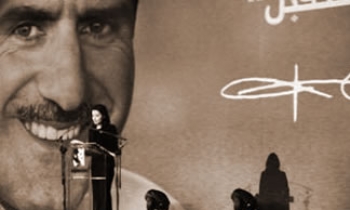It's opinion. It's conjecture. It's a tidbit from the newest poll or another alarming image -- delivered with rising drumbeats -- from the day's top story. It's today's 24-hour news.
But as Americans bathe in constant reports from CNN or Fox, the Internet, satellite radio, newspapers and magazines, is there a price to pay for living in a world where the news never stops?
Increasingly, analysts say, we are compelled not so much by legitimate thirst for information as by an addiction to technology and impulses that turn human attention to fear, sex and conflict.
The result: Our minds get filled with static, distortion and exaggerated anxiety.
After a disaster, "television news shows the same images repeatedly -- with virtually no additional information each time," said Frank Vespe, executive director of the TV-Turnoff Network, a group that calls for less TV watching. "The horror is beaten into you with no corresponding increase in knowledge. The message you receive is that the world is big, dangerous, scary and completely out of control -- a message that is profoundly disturbing."
And the incessant consumption of news can be harmful, some say.
J. Patrick McGrail, an assistant professor of communications and theater arts at Susquehanna University in Selinsgrove, Pa., believes in the "mean world" syndrome -- that those who are bombarded by news overestimate the amount of violence and bad deeds in the world.
"A cynical public becomes a detached, uninvolved public," McGrail said. "And that's a public that may not vote -- participate civically -- or regard the world in a positive light."
Continuous reports on scandal and disaster, he said, "have resulted in a public that tunes in for the sexy and dramatic, but as cynical and detached observers, not as righteously outraged or motivated citizens."
RAND Corp. research after the Sept. 11, 2001 terrorist attacks showed that children displayed more signs of stress if their parents didn't limit TV watching. Another post-9/11 study of New Yorkers by the Research Triangle Institute showed a correlation between TV watching and psychological problems.
Dr. Marc Siegel, a clinical associate professor at the New York University School of Medicine, is author of the forthcoming book "False Alarm: The Truth About the Epidemic of Fear." Siegel says exhaustive coverage of the Sept. 11 attacks established a new template for terrorism coverage.
"The media developed a shtick, a way to respond to these threats, without necessarily differentiating between their magnitudes," said Siegel, an internist at NYU Medical Center. "They crank that up. It's in place for threats and potential threats."
While news consumption is difficult to measure, there is little doubt that Americans are being inundated by more, and from more sources.
During 2004-2005, an average 1.8 million Americans were tuned to one of the four 24-hour news channels -- CNN, CNBC, Fox and MSNBC -- at any given time, according to Nielsen Media Research. That was up from 920,000 in 1999-2000. The trend was similar in prime time.
Other measures, meanwhile, show Americans are seeking news through other media. According to Columbia University's Project for Excellence in Journalism, 36 percent of Americans are "regular consumers" of four or more different kinds of news outlets -- network news, local TV, newspapers, cable, radio, the Internet and magazines.
But it's the content and presentation of news, not just its ubiquity, that troubles those who track the evolution of the information age. Cable TV news in particular, critics say, is often speculative, combative and -- to fill the hours of broadcast time -- repetitive.
"One of my colleagues and I have been throwing around a concept called `phantom news,"' said Robert Simmermon, an Atlanta media psychologist. "Basically, what's happening is, there's less there than meets the eye. With 24 hours of news, and nothing breaking, we go over and over it again."
Robert Kubey, director of the Center for Media Studies at Rutgers University, concurred. "A tremendous amount of the TV news is speculative," he said. "If you look at the coverage before the Supreme Court appointment, they were going nuts talking about the wrong person. They were looking into her background. But they have to fill up a 24-hour news hole."
Kubey fears Americans are "so over-entertained, one has to ask whether people have lost their ability to occupy themselves."
The best weapons against news overload are awareness and education, said Cynthia Scheibe, assistant professor of psychology at New York's Ithaca College. More children need to be taught about news -- how it differs from opinion and entertainment, how its source can drive its content, how current technology offers infinite perspectives.
"Being aware of media in our lives is like a fish being aware of water," Scheibe said. "It surrounds us. It's very hard to be woken up to media exposure -- not impossible, but hard."









